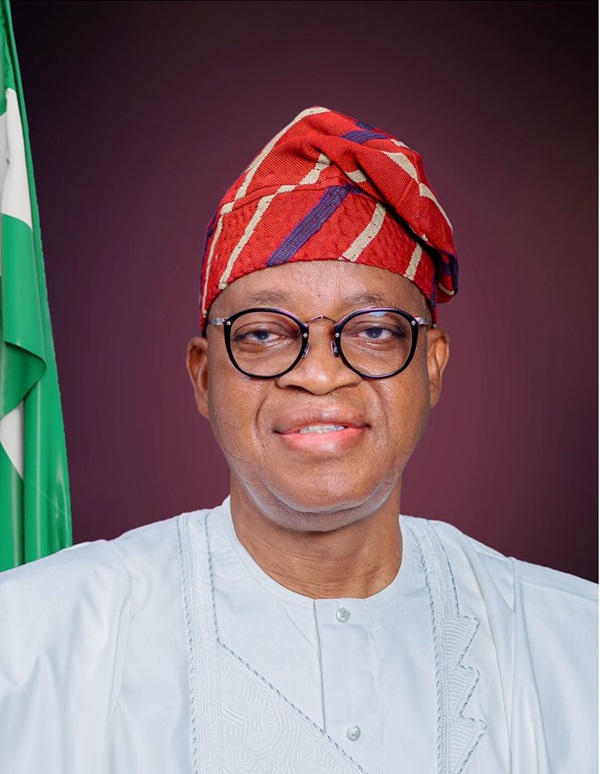
The Federal Government has expressed its unwavering support for the establishment of the National Coast Guard (NCG) through the National Coast Guard Bill, commending its proponents for taking a significant step toward unlocking the nation’s maritime potential.
The Minister of Marine and Blue Economy, Adegboyega Oyetola, highlighted this support during a 1-day public hearing on the National Coast Guard Bill at the National Assembly complex. Oyetola emphasised that the passage of the bill will be pivotal in ensuring maritime safety, sustainable marine resource development and fostering economic growth for the country.
In his speech, Oyetola outlined key areas where the National Coast Guard will play a crucial role in safeguarding Nigeria’s vast maritime domain. These include:
- Maritime Safety: Ensuring the protection of shipping activities and the security of seafarers in Nigeria’s waters.
- Environmental Protection: Enforcing regulations to preserve marine ecosystems and combat environmental degradation such as pollution.
- Enforcement of Civil Maritime Laws: Ensuring the enforcement of fishing regulations and preventing illegal maritime activities, including the exploitation of marine resources.
- Search and Rescue Operations: Providing timely responses to maritime emergencies, including rescue operations during accidents at sea.
Citing a 2009 publication by the African Centre for Strategic Studies, Oyetola noted that 15 out of the 21 independent maritime nations in sub-Saharan Africa already have dedicated coastguards. These nations, despite having smaller populations and coastlines than Nigeria, recognise the importance of such institutions. Oyetola emphasised that Nigeria, with its vast 850 km coastline and numerous inland waterways, has a greater need for an institution like the National Coast Guard.
While acknowledging the vital role the Nigerian Navy has played in securing Nigeria’s maritime space, especially through initiatives such as the Deep Blue Project, which has been credited with eradicating piracy in Nigerian waters over the past three years, Oyetola stressed the necessity of a dedicated coast guard to complement the efforts of the Navy.
“Nigeria’s coastline is one of the longest in the world, and it represents both an economic opportunity and a challenge. Pollution, overfishing, and unsustainable resource use threaten the potential of this critical sector,” Oyetola said. “The establishment of the National Coast Guard will tackle these issues by providing a dedicated force that will address the unique demands of safeguarding our maritime domain.”
The minister also urged the Senate and the National Assembly to fully support the passage of the bill, underscoring that the establishment of a National Coast Guard is vital for ensuring a safe and sustainable maritime environment. He emphasised that the bill would not only help mitigate maritime threats but also enable Nigeria to fully tap into the economic opportunities offered by its maritime domain.
Further, Oyetola appealed for a flexible and adaptive implementation strategy for the National Coast Guard that would evolve with changing maritime challenges. He called for support from those with reservations about the bill, urging them to recognise the pressing need for the institution in safeguarding Nigeria’s economic and environmental interests.
At the hearing, the President of the Nigerian Senate, Godswill Akpabio, praised the Senate Committee on Marine and Transport for their dedication in championing the cause of the National Coast Guard Bill. Akpabio, represented by Sen. Akintunde Yunus, emphasized that the bill is not merely a formality but an urgent necessity for the nation’s safety and economic prosperity.
“The establishment of the National Coast Guard is more than just a legislative process; it is a critical decision for the protection of Nigeria’s waterways and marine resources,” Akpabio said. He noted that with Nigeria’s vast coastline, an effective coast guard would significantly enhance maritime safety, ensuring both the protection of national interests and the welfare of seafarers.
Chairman of the Senate Committee on Marine and Transport, Sen. Sanni Eshinlokun also spoke at the hearing. He noted that the bill was first introduced in the Senate on October 3, 2024, and that it had since been deliberated upon. Eshinlokun confirmed that the bill was referred to the Senate Committee on Marine Transport for further action, to refine its provisions in line with the 10th Senate’s commitment to inclusive law-making.
“Today’s public hearing seeks to enhance the bill’s provisions, ensuring that it aligns with the goals of the 10th Senate,” Eshinlokun said. He assured that the committee would continue to prioritise the National Coast Guard Bill to ensure its passage.
The hearing saw various stakeholders in Nigeria’s maritime sector offer their perspectives, with many reiterating the importance of a National Coast Guard in addressing critical issues such as piracy, illegal fishing and environmental protection. Some participants emphasised the economic potential of Nigeria’s maritime resources, arguing that the National Coast Guard would play a key role in facilitating sustainable development and ensuring the safety of both national and international maritime traffic.
The establishment of the National Coast Guard is expected to be a game-changer for Nigeria’s maritime sector, providing the necessary structure for enforcing maritime laws and ensuring the safety of the nation’s waters. With the backing of both the executive and legislative branches of government, the bill is poised to become a cornerstone in Nigeria’s efforts to unlock the full potential of its maritime domain.
The proposed National Coast Guard is set to play a critical role in securing Nigeria’s maritime domain, protecting its marine resources, and ensuring the safety of maritime activities. As the bill continues to make its way through the legislative process, it is clear that its passage will mark a decisive moment in the growth of Nigeria’s blue economy.

